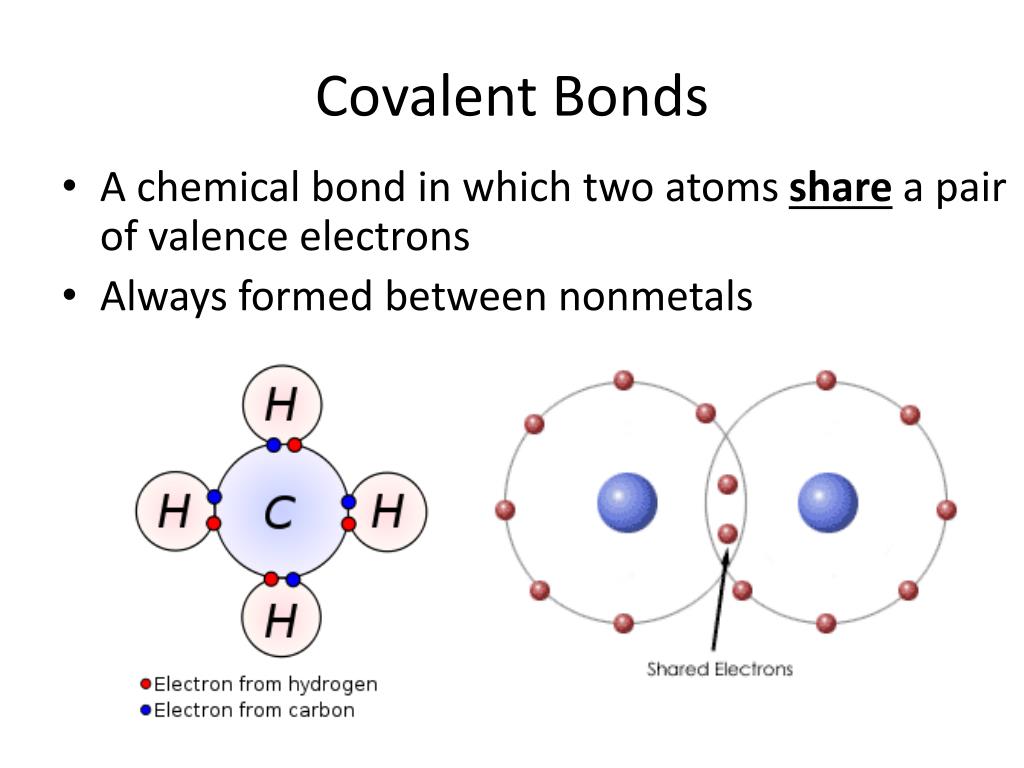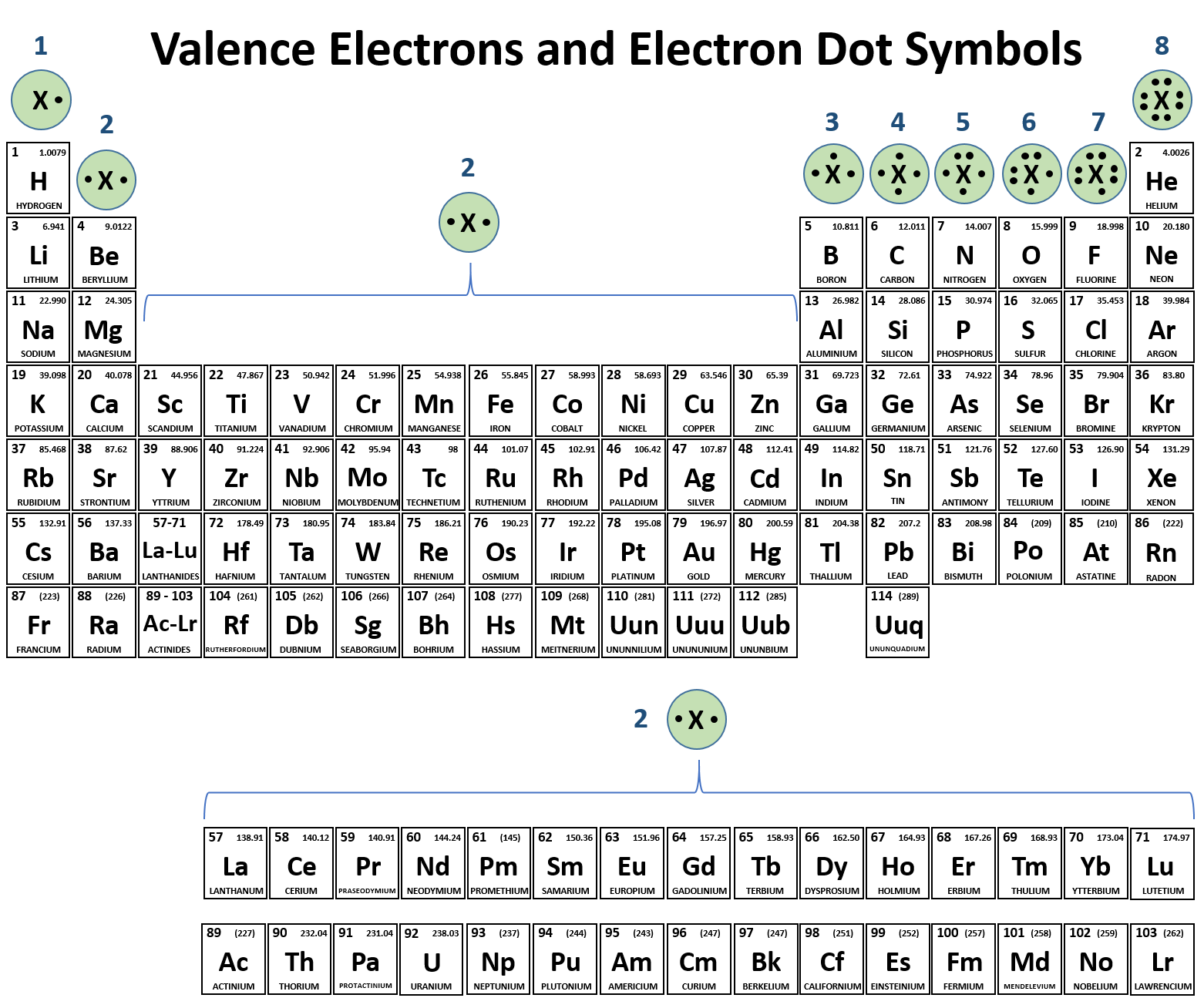Which Elements Form Covalent Bonds
Which Elements Form Covalent Bonds - This type of bond is. Water is a familiar substance comprised of hydrogen and oxygen linked by covalent bonds. Web covalent bonds are chemical bonds in which two or more elements join together by sharing electrons, rather than transferring electrons, as is the case with ionic bonds. Questions tips & thanks want to join the conversation? Its atomic number is 16, belongs to group 16 and period 3 of. Web chemistry which elements are covalent? They contain atoms that are covalently bonded. Web introduction to biological macromolecules chemical bonds google classroom chemical bonds hold molecules together and create temporary connections that are essential to life. Web the sharing of electrons between atoms is called a covalent bond, and the two electrons that join atoms in a covalent bond are called a bonding pair of electrons. Web the chemical elements most likely to form covalent bonds are those that share electrons, such as carbon, as opposed to those that take them from another element to form an ionic bond.
Web chemistry which elements are covalent? This type of bond is. September 16, 2021 erwin van den burg 4 min read covalent bonding and electronegativity. Types of chemical bonds including covalent, ionic, and hydrogen bonds and london dispersion forces. Covalent bonds form when atoms share electrons. Web predict the number of covalent bonds formed based on the elements involved and their position on the periodic table. This sharing allows each atom to achieve its octet of electrons and greater stability. A discrete group of atoms connected by covalent bonds is called a molecule—the smallest part of a compound that retains the chemical identity of that compound. Questions tips & thanks want to join the conversation? Describe the important exceptions to the octet rule.
Questions tips & thanks want to join the conversation? Its atomic number is 16, belongs to group 16 and period 3 of. They contain atoms that are covalently bonded. Types of chemical bonds including covalent, ionic, and hydrogen bonds and london dispersion forces. Web the sharing of electrons between atoms is called a covalent bond, and the two electrons that join atoms in a covalent bond are called a bonding pair of electrons. Diatomic molecules such as hydrogen (\(\ce{h2}\)), chlorine (\(\ce{cl2}\)), fluorine (\(\ce{f2}\)), etc. These bonds tend to occur with nonmetal elements of the periodic table. Water is a familiar substance comprised of hydrogen and oxygen linked by covalent bonds. Describe the important exceptions to the octet rule. A discrete group of atoms connected by covalent bonds is called a molecule—the smallest part of a compound that retains the chemical identity of that compound.
Which elements form a covalent bond? Quora
Questions tips & thanks want to join the conversation? They are located toward the center of the periodic table, according to howstuffworks. Diatomic molecules such as hydrogen (\(\ce{h2}\)), chlorine (\(\ce{cl2}\)), fluorine (\(\ce{f2}\)), etc. Describe the important exceptions to the octet rule. Web chemistry which elements are covalent?
Covalent Bonds The Basics of Chemical Bonding
In general, they are nonmetals with similar electronegativities. Its atomic number is 16, belongs to group 16 and period 3 of. September 16, 2021 erwin van den burg 4 min read covalent bonding and electronegativity. Covalent bonds form when atoms share electrons. Web introduction to biological macromolecules chemical bonds google classroom chemical bonds hold molecules together and create temporary connections.
Covalent Bond Examples Several Examples of Covalent (molecular) Bonds
Containing covalent bonds between two of the same type of atom are. A discrete group of atoms connected by covalent bonds is called a molecule—the smallest part of a compound that retains the chemical identity of that compound. Questions tips & thanks want to join the conversation? Web predict the number of covalent bonds formed based on the elements involved.
PPT Covalent Bonds PowerPoint Presentation, free download ID6647183
Detailed insights and facts covalent bond types of elements examples. A discrete group of atoms connected by covalent bonds is called a molecule—the smallest part of a compound that retains the chemical identity of that compound. Web introduction to biological macromolecules chemical bonds google classroom chemical bonds hold molecules together and create temporary connections that are essential to life. Web.
Explain what a covalent bond is, what types of elements form covalent
This sharing allows each atom to achieve its octet of electrons and greater stability. Web the sharing of electrons between atoms is called a covalent bond, and the two electrons that join atoms in a covalent bond are called a bonding pair of electrons. Diatomic molecules such as hydrogen (\(\ce{h2}\)), chlorine (\(\ce{cl2}\)), fluorine (\(\ce{f2}\)), etc. They contain atoms that are.
Forms of Binding in Crystals Overall Science
A compound composed of molecules. Web the sharing of electrons between atoms is called a covalent bond, and the two electrons that join atoms in a covalent bond are called a bonding pair of electrons. Detailed insights and facts covalent bond types of elements examples. Methane, ch 4, the simplest organic compound, contains covalent bonds. Web 9 covalent bond types.
CH150 Chapter 4 Covalent Bonds and Molecular Compounds Chemistry
Web introduction to biological macromolecules chemical bonds google classroom chemical bonds hold molecules together and create temporary connections that are essential to life. Its atomic number is 16, belongs to group 16 and period 3 of. Covalent bonds form when atoms share electrons. They are located toward the center of the periodic table, according to howstuffworks. Water is a familiar.
Covalent Bond Biology Dictionary
Web chemistry which elements are covalent? Describe the important exceptions to the octet rule. They contain atoms that are covalently bonded. September 16, 2021 erwin van den burg 4 min read covalent bonding and electronegativity. Covalent bonds form when atoms share electrons.
CH150 Chapter 4 Covalent Bonds and Molecular Compounds Chemistry
Web chemistry which elements are covalent? A discrete group of atoms connected by covalent bonds is called a molecule—the smallest part of a compound that retains the chemical identity of that compound. Containing covalent bonds between two of the same type of atom are. Web the sharing of electrons between atoms is called a covalent bond, and the two electrons.
Covalent Bonds Biology for Majors I
These bonds tend to occur with nonmetal elements of the periodic table. They are located toward the center of the periodic table, according to howstuffworks. Questions tips & thanks want to join the conversation? Covalent bonds form when atoms share electrons. Types of chemical bonds including covalent, ionic, and hydrogen bonds and london dispersion forces.
This Type Of Bond Is.
A discrete group of atoms connected by covalent bonds is called a molecule—the smallest part of a compound that retains the chemical identity of that compound. This sharing allows each atom to achieve its octet of electrons and greater stability. Web covalent bonds are chemical bonds in which two or more elements join together by sharing electrons, rather than transferring electrons, as is the case with ionic bonds. Detailed insights and facts covalent bond types of elements examples.
Containing Covalent Bonds Between Two Of The Same Type Of Atom Are.
They are located toward the center of the periodic table, according to howstuffworks. Web the chemical elements most likely to form covalent bonds are those that share electrons, such as carbon, as opposed to those that take them from another element to form an ionic bond. In general, they are nonmetals with similar electronegativities. Web 9 covalent bond types of elements:
Web Introduction To Biological Macromolecules Chemical Bonds Google Classroom Chemical Bonds Hold Molecules Together And Create Temporary Connections That Are Essential To Life.
These bonds tend to occur with nonmetal elements of the periodic table. Describe the important exceptions to the octet rule. Poor conductivity compared to ionic compounds molecular compounds generally do not conduct electric currents when melted or dissolved in water. A compound composed of molecules.
Covalent Bonds Form When Atoms Share Electrons.
Diatomic molecules such as hydrogen (\(\ce{h2}\)), chlorine (\(\ce{cl2}\)), fluorine (\(\ce{f2}\)), etc. September 16, 2021 erwin van den burg 4 min read covalent bonding and electronegativity. Questions tips & thanks want to join the conversation? Web chemistry which elements are covalent?







